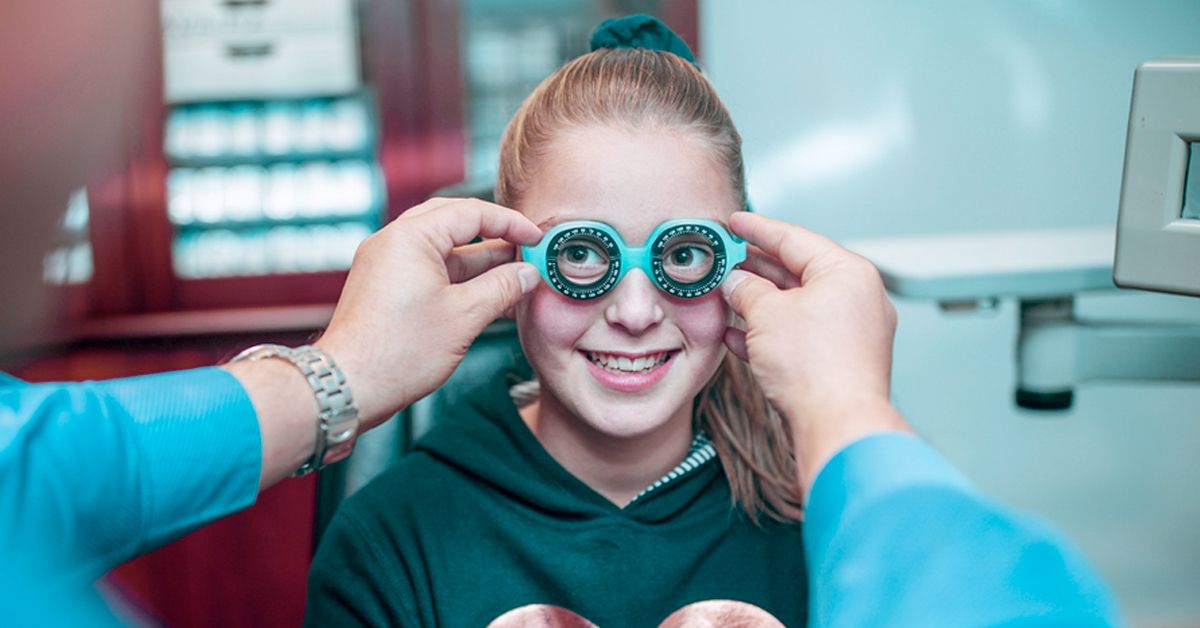Is Refractive Surgical Treatment Right for You? Variables to Take Into Consideration for Better Eyecare
In the realm of eye care, the choice to undertake refractive surgical treatment is a weighty one that requires thoughtful factor to consider. From the intricacies of one's eye health to the ins and outs of individual assumptions and day-to-day behaviors, each facet holds value in the more comprehensive landscape of refractive surgical procedure candidateship.
Eye Health Examination
When taking into consideration refractive surgery, a comprehensive eye health analysis is crucial to assess the viability of the treatment for every individual. eye doctors in andalusia. This evaluation includes a series of examinations and exams performed by an eye care professional to figure out the total health of the eyes, the presence of any type of underlying conditions, and the security of the refractive mistake
During the examination, different variables are thought about, such as the person's clinical history, present eye prescription, corneal density, pupil dimension, and tear movie top quality. These assessments help to identify any contraindications to refractive surgical procedure, such as corneal abnormalities, cataracts, or unattended eye infections. Additionally, the evaluation aids to manage patient expectations relating to the potential end results of the surgery based on their special eye features.
Ultimately, the eye health assessment is crucial in making certain the safety and efficiency of refractive surgery, as it supplies useful understandings right into the person's eye health status and helps figure out the most appropriate therapy options for achieving optimal visual outcomes. (cardiologist andalusia)
Lifestyle Evaluation
A thorough way of living assessment is indispensable in figuring out the suitability of refractive surgery for a person's aesthetic modification requirements. Lifestyle aspects such as line of work, pastimes, and daily activities play an essential duty in the decision-making process relating to refractive surgery.
Furthermore, lifestyle habits such as sporting activities participation, exterior tasks, or also skin care regimens can affect the healing process and total success of refractive surgical procedure. By performing a thorough way of life evaluation, eye care professionals can customize their referrals and treatment plans to fulfill the special demands of each individual, eventually leading to improved aesthetic results and complete satisfaction.
Expectation Placement

Clients need to understand that while many people attain 20/20 vision or much better complying with refractive surgical procedure, some may still call for glasses for certain tasks like analysis or driving at night. Handling these best site expectations aids protect against frustration and discontentment post-surgery, leading to an extra positive total experience for the patient.
Risk Analysis

Aspects that may boost the threat of problems consist of age, certain medical problems like autoimmune diseases, unstable vision prescription, slim corneas, and impractical client assumptions. Additionally, choosing a knowledgeable and experienced surgeon, adhering to pre and post-operative treatment instructions carefully, and divulging any relevant medical background can aid mitigate dangers.
To minimize the possibility of issues, eye doctors conduct comprehensive pre-operative examinations to recognize any type of contraindications to surgical procedure. They additionally discuss the potential risks and benefits with clients during the examination process. By participating in open communication and shared decision-making, both the ophthalmologist and the client can collaborate to identify if refractive surgical treatment is the ideal selection based upon private danger profiles and desired outcomes.
Consultation Importance
Thinking about the critical role of informed decision-making in analyzing threats and possible issues in refractive surgical treatment, the assessment process holds substantial significance in directing patients in the direction of ideal end results. Throughout the examination, the ophthalmologist examines the individual's eye health and wellness, refractive errors, and total viability for surgical treatment. This initial analysis is vital in identifying the most suitable procedure for each person, taking right into account elements such as corneal density, pupil size, and existing eye conditions.
Furthermore, the consultation acts as a chance for people to discuss their assumptions, worries, and any inquiries they might have pertaining to the surgery. Clear communication between the doctor and the person is important find more info to make sure reasonable expectations and an extensive understanding of the prospective threats and advantages entailed.
Furthermore, the consultation enables the surgeon to discuss the various surgical choices readily available, their respective results, and the post-operative care called for. This extensive conversation encourages patients to make knowledgeable choices concerning their eye care, leading to much better contentment and outcomes post-surgery.
Conclusion
In final thought, people taking into consideration refractive surgery must undergo a comprehensive eye health and wellness analysis, assess their lifestyle practices, align their expectations with prospective end results, examine the affiliated threats, and prioritize consultations with eye care professionals. These elements play a vital duty in establishing the suitability of refractive surgical procedure for each and every person, making certain optimum outcomes and complete satisfaction with the procedure.
Clients thinking about refractive surgery frequently have high expectations regarding the end results, anticipating best vision without the requirement for glasses or get in touch with lenses. While refractive surgery can significantly boost vision and minimize reliance on aesthetic aids, it is essential for patients to recognize that outcomes may differ based on specific variables such as the level of refractive error, corneal density, and general eye health.
By involving in open interaction and shared decision-making, both the ophthalmologist and the client can function with each other useful source to establish if refractive surgical treatment is the appropriate choice based on specific danger accounts and preferred outcomes.
Taking into consideration the essential function of educated decision-making in examining risks and possible problems in refractive surgical treatment, the assessment procedure holds considerable relevance in directing patients towards optimum results. Throughout the assessment, the ophthalmologist reviews the client's eye wellness, refractive errors, and general viability for surgery.